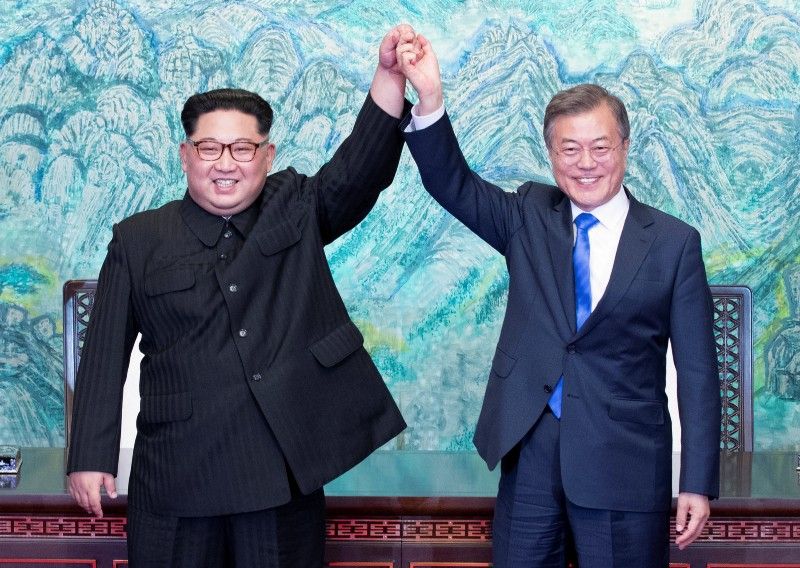April 27, 2018
Moon-Kim: As I write, South Korea’s Moon Jae-in and North Korea’s Kim Jong-un are sitting exactly 2,018 millimeters apart (in honor of this 2018 summit) in a “Peace House” inside the demilitarized zone (DMZ). It’s the first meeting between leaders of the two Koreas since 2007.
This is must-watch TV, but on substance, don’t expect the dawning of a new day. Maybe Moon and Kim will reopen the Kaesong Industrial Complex, a project that employs tens of thousands of North Korean workers at South Korean-owned factories. Maybe they’ll allow reunions for some of the 60,000 family members separated by the Korean War. These things matter for people’s lives, even if they don’t shift the international status quo. They have produced a “peace agreement,” though not one that moves US troops, the DMZ, or its landmines. And the word “denuclearization” won’t mean much until Kim defines it for Trump and makes clear what he expects in return.
Beyond symbolism, the meeting’s greatest importance is as prelude to the much-anticipated meeting Kim hopes to have with President Trump in May or June. For today, we can enjoy the pageantry as the North and South Korean leaders plant a commemorative pine tree.
Trump-Merkel: After President Trump’s back-patting, high-fiving boys club meeting with Emmanuel Macron, the French president left Washington with little more than Shinzo Abe won from Trump the week before. Like Moon and Kim, Macron and Trump planted a tree together, but Macron got no pledge to spare the Iran deal, no reversal on the Paris climate accord, and no long-term US commitment in Syria.
What hope then for Germany’s Angela Merkel, who meets with Trump today? She won’t play golf with Trump, as Abe did, or hold hands with him, as Macron did. She won’t have more success than Macron in changing Trump’s mind on Iran or persuade him to offer Europe a permanent waiver on steel tariffs. (Trump might extend the waiver beyond its current expiration date of May 1, but “permanent” is more than he’s likely to give.) He’ll talk tough on trade deficits, she’ll look bored, both will wave, and the curtain will fall. Europe’s two heaviest hitters will have taken their turns at bat this week. Like Japan’s Abe, they will have little to show for it.
Modi-Xi: A much more interesting conversation is taking place today and tomorrow in Wuhan, China, where India’s Prime Minister Narendra Modi meets with China’s President Xi Jinping. Talks between Modi and Xi are intended to manage tensions rather than break new ground, but given the stakes between these Asian powers, any progress would be significant.
They’ll discuss how best to avoid a repeat of last summer’s 73-day border faceoff that inspired Indian and Chinese troops to (literally) throw rocks at one another. They’ll talk about China’s Belt and Road investment plan, its expanding ties with Pakistan, its growing presence in the Indian Ocean, and India’s concerns about all these things.
The most promising aspect of this meeting is that it centers on informal private conversations between Xi and Modi. Asia’s two most important leaders won’t plant a tree together, but they might build a new level of personal trust.
More For You
Think you know what's going on around the world? Here's your chance to prove it.
Most Popular
Donald Trump alongside Nigel Farage amid a television interview at his Trump Turnberry course in South Ayrshire during his visit to the United Kingdom, on May 3, 2023.
PA via Reuters
The US government will reportedly fund MAGA-aligned parties and think tanks in Europe. But with US President Donald Trump’s favorability in Europe so low, do they even want the money?
- YouTube
Zelensky agrees: elections matter #PUPPETREGIME
As more small businesses move sales, payments, and customer relationships online, they unlock new opportunities, but they also become easier targets for cyber-criminals and other threat actors.
© 2025 GZERO Media. All Rights Reserved | A Eurasia Group media company.
